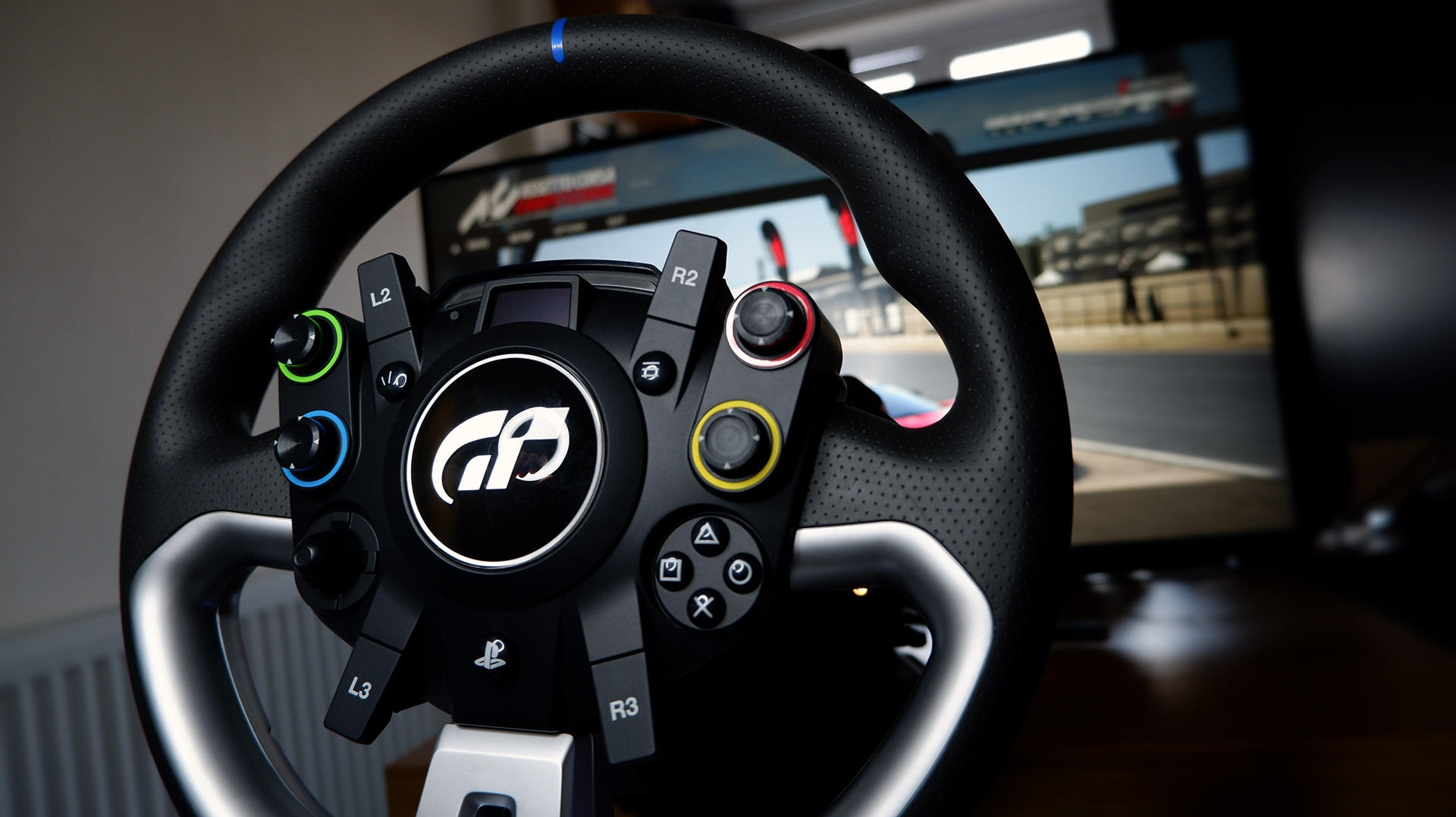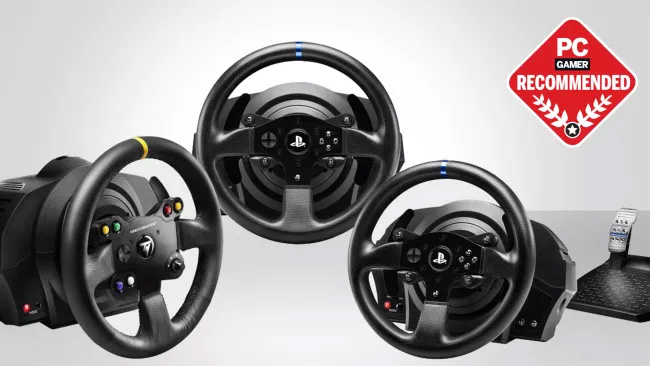'It's certainly not going to be business as usual because business at the moment is not as we'd like it'—Corsair CEO on its Fanatec acquisition
Fanatec was in a total mess but it looks like Corsair is planning to fix it all.

Earlier this year, we reported on Corsair's plan to acquire Endor AG, owners of the sim racing specialist Fanatec. That looked somewhat less certain after Endor filed for insolvency in July, but the deal went ahead and Fanatec is now part of Corsair. That includes its debts, manufacturing difficulties, and a raft of upset customers. Nevertheless, Corsair is determined to fix it all, though its CEO admits that "it's certainly not going to be business as usual because business at the moment is not as we'd like it."
Andy Paul, Corsair's chief executive officer, made the remark in an interview with The Drive and pointed out that the necessary work to resolve everything was already underway. For example, one common complaint from Fanatec's customers was that support was very limited, such as only being available for eight hours per working day.
Corsair says it will take a few months to set up a global 24/7 customer service but once complete it should prevent repetitions of incidents such as untrackable orders that plagued Fanatec, especially during and after the Covid lockdown periods.
Something else that Andy Paul wants to get on top of is the whole manufacturing process because Fanatec was taking months to complete certain orders. "It turns out the factories in China are not full, not busy, so costs are actually in pretty good shape," Paul noted.
That comment raises a simple question, though. If the factory manufacturing all of Fanatec's parts wasn't at full capacity, why was it taking so long for orders to arrive? It would seem that the company just didn't have the infrastructure in place to deal with so many orders and would routinely sell items that it just didn't have in stock.
Fortunately, Corsair is a much larger operation and its vast portfolio of PC hardware and accessories means it has a significantly better grasp of managing large inventories and orders
"We have very large factories running that produce a lot of stuff. We're going to be able to tune up the whole supply chain and maintain competitiveness."
The biggest gaming news, reviews and hardware deals
Keep up to date with the most important stories and the best deals, as picked by the PC Gamer team.
Something else it has is a presence in the retail market. Fanatec only sold its products directly, whereas Corsair's hardware can be found in stores and all of the major online retailers. Not only should that make it much easier to find a Fanatec wheel system you like but you may also have the chance to try one out first.

Best PC racing wheels : perfect for any circuit.
Best VR headset: which set is right for trackdays?
However, Paul did remark that this is only likely to be for the lower-priced items. "We'll try [to] bring some of the costs down with our supply chain so we can actually run some of the lower-end products through retail… I think for the high-end gear, the sort of $1,000 wheel and pedals, I think that's going to either stay direct-to-consumer or [get sold via] very, very specialized retailers."
Whatever one thinks about Corsair's purchase of Fanatec, it's great that the products will continue to see the light of day. Logitech pretty much dominates the general racing wheel market (though there are numerous vendors in more expensive niche sectors) so any competition here is going to be good for the consumer.
At the very least, you can expect to not have to wait months for your new wheel to arrive, only to find you'll never actually get one because it wasn't in stock!

Nick, gaming, and computers all first met in 1981, with the love affair starting on a Sinclair ZX81 in kit form and a book on ZX Basic. He ended up becoming a physics and IT teacher, but by the late 1990s decided it was time to cut his teeth writing for a long defunct UK tech site. He went on to do the same at Madonion, helping to write the help files for 3DMark and PCMark. After a short stint working at Beyond3D.com, Nick joined Futuremark (MadOnion rebranded) full-time, as editor-in-chief for its gaming and hardware section, YouGamers. After the site shutdown, he became an engineering and computing lecturer for many years, but missed the writing bug. Cue four years at TechSpot.com and over 100 long articles on anything and everything. He freely admits to being far too obsessed with GPUs and open world grindy RPGs, but who isn't these days?

